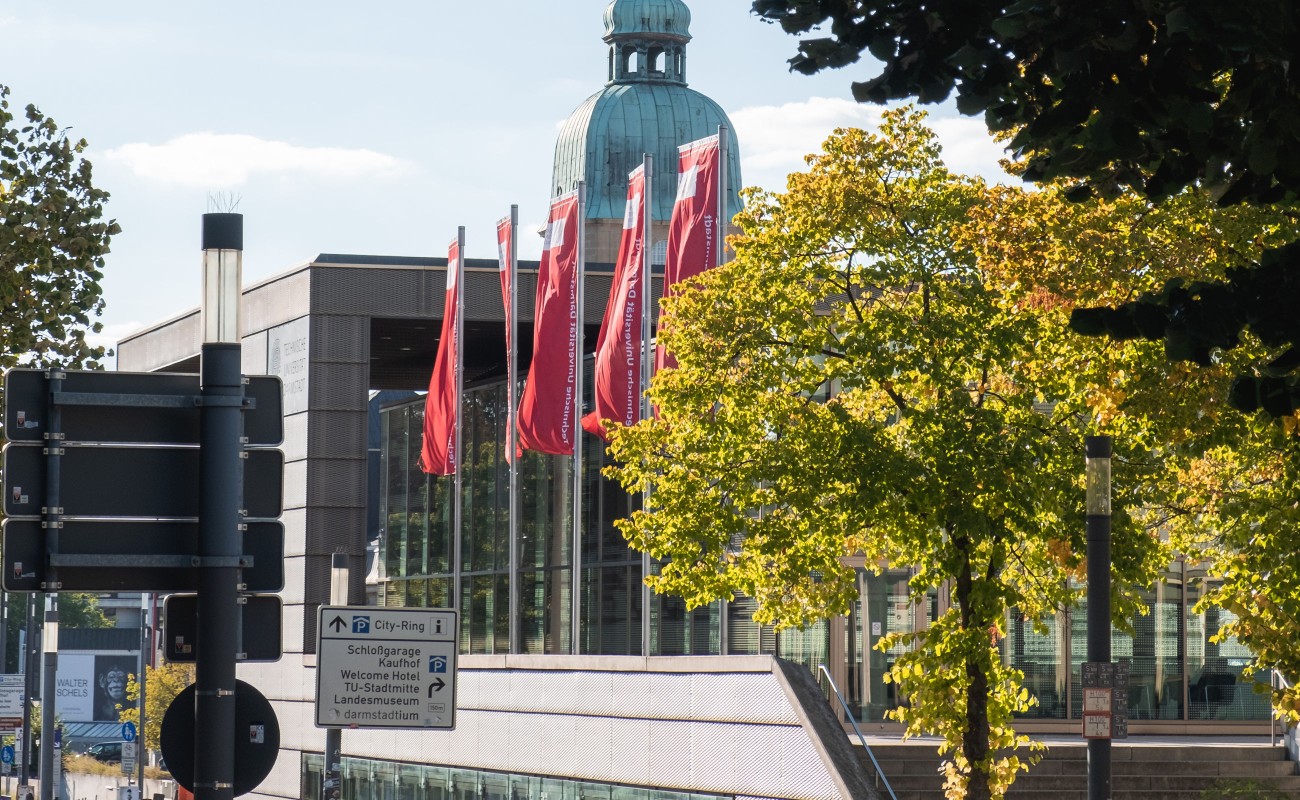These management guidelines form part of the university’s development strategy.
The management guidelines are applicable throughout TU Darmstadt – from members of the Executive Board to anyone who manages other people as part of their role.
The management guidelines will guide the actions of executive managers in their key roles of providing the basis for making and implementing decisions.
One of the goals for the management guidelines being pursued by the Executive Board is to set out a definition of high management quality that is accessible to all members of staff. For the executive managers, this provides a benchmark against which to assess the effectiveness of their managerial activities and helps stimulate dialogue about the culture of leadership. In terms of understanding what management is, this encourages a progression from individual management styles to a shared culture of leadership across TU Darmstadt.
Mutual respect
As executive managers at TU Darmstadt, we treat our staff with respect and fairness.
- Executive managers provide guidance and should act in a reliable way.
- Together, executive managers and their staff shall reflect on their teamwork and communication between them on a regular basis in order to ensure continual development in these areas.
- Executive managers support their staff.
- Mutual respect also means adopting a positive attitude, being approachable to staff wishing to express issues or concerns, and taking steps to ensure work-life balance both personally and for other members of staff.
Culture of innovation
As executive managers at TU Darmstadt, we set an example of strong innovation and create the conditions for our staff to implement new ideas.
- The university’s autonomy and the personal responsibility associated with that are important structural requirements in creating a culture where innovation can arise.
- Executive managers strive to set an innovative example and to actively shape the framework conditions that will facilitate development and innovation.
- In the process, existing structures shall be respected and innovation supported across all parts of the university.
- Factors in promoting innovation can include cultivating a willingness to embrace change, changing perspectives, creating an environment that encourages personal initiative and new ideas, providing creative freedom, dealing with
mistakes constructively, and fostering collaboration across departments.
Staff development
As executive managers at TU Darmstadt, we support the professional and personal development of our staff.
- • Staff development relates to functional and task-related aspects in terms of career advancement. This is complemented by personal development, including social skills and self-management.
- • All employees and occupational groups are encouraged to make use of the support available.
- • To be successful, staff development activities require active participation and employee engagement.
- • Instruments may include employee review meetings, annual appraisals, internal and external shadowing / observation, mentoring, healthy role models, the use of internal recruitment for vacancies by all organisational units, offering activities for personal and organisational development (including internal and external continuing professional development).
Responsibility
As executive managers at TU Darmstadt, we are responsible for staff, our tasks and the organisation as a whole.
- Executive managers make decisions in the interests of TU Darmstadt and either implement these decisions or ensure that they are implemented as applicable.
- Decisions are to be taken in the spirit of social responsibility, considering social and economic factors alike.
- Decision-making processes are to be as transparent and accountable as possible.
- Taking responsibility also means adhering to budgets, meeting quality standards, ensuring a proper flow of information, deciding how to proceed in the event of conflicts, and future-proofing the organisation.
Teamwork
As executive managers at TU Darmstadt, we communicate openly and work together based on trust across organisational boundaries.
- The aim is successful collaboration between academics and the administration as well as with decentralised and centralised administrators within the university, and also beyond the university with our external collaborative partners.
- It is essential to develop an awareness that employees from all organisational units make a key contribution to achieving TU Darmstadt’s overall objectives.
- TU Darmstadt sees itself as an organisation in which we work together to pursue the university’s strategic aims.
- Collaboration across departments can be fostered by: further developing and implementing the corporate identity, sharing best practice and experience, as well as by adopting an organisation-wide approach to managing processes, projects and human resources.
Diversity
As executive managers at TU Darmstadt, we embrace diversity as an opportunity and ensure that interaction is on equal terms.
- TU Darmstadt understands diversity as equal treatment without prejudice, irrespective of all diversity characteristics such as gender, age, religion, belief, ethnicity, physical or mental impairment, sexual identity, life plans, origin or culture.
- Embracing diversity as an opportunity also means guaranteeing gender equality and using different points of view, experiences and cultures to drive creativity and innovation.
- Ensuring interaction on equal terms involves establishing an equal and cooperative team culture that is free of discrimination or prejudice.
- The benefits of diversity can be achieved in a targeted way through staff recruitment, in the way that projects and teams are put together, as well as by empowering the talent attracted and utilising the potential that has been created.





